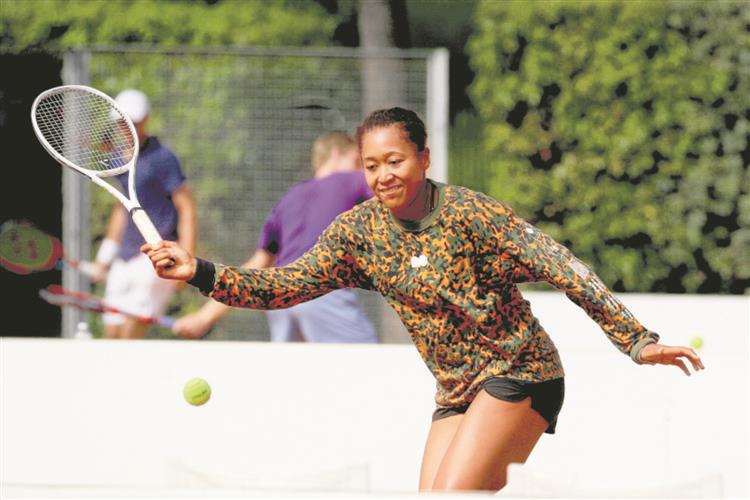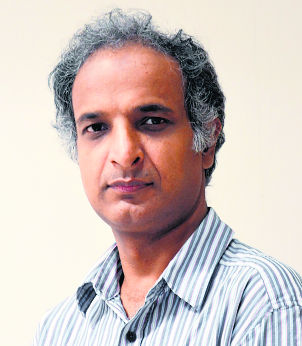
Naomi Osaka
India is ranked 139th out of 149 countries surveyed for this year’s World Happiness Report. The luckless Afghanistan is the unhappiest, Finland the happiest. These are depressing times, but India’s low rank isn’t caused by the Covid-19 pandemic — from 111th in 2013, India has been sliding down this table, hitting rock bottom at 144 in 2020. The rankings may or may not seem entirely persuasive, but anecdotal evidence suggests that unhappiness is endemic in the country.
The loss of loved ones, the fear of dying, the loss of financial security, the loss of certainty... Bodies on the railway tracks, the terrible scenes at cremation grounds, the swollen bodies on the Ganga... Fear and uncertainty prey on the mind. Even our Prime Minister chokes with emotion when talking about the terrible fate his countrymen are enduring.
A study conducted last year, a few months into the pandemic, found that 43 per cent Indians were suffering from depression. The pandemic may have skewed the numbers; conversely, experts believe that mental disorders are vastly underreported in India due to the stigma they carry.
Even in the best of times, people are depressed. There is no immunity from depression — there never was. Naomi Osaka, the fabulously rich tennis star who seems to have everything, has suffered “long bouts of depression” since 2018. Sachin Tendulkar says he battled “anxiety” for half his career. Virat Kohli was so low a few years ago that he had “end of the world” thoughts. Don Bradman, following “the strain of cricket and travel”, reached a state in which he was “organically sound” but “run down” — some sort of mental condition.
Osaka withdrew from the French Open after being fined $15,000 for skipping the mandatory press conference after her first-round win. She had previously announced her intention to stay away from the media — “I’ve watched many clips of athletes breaking down after a loss in the press room... I believe that whole situation is kicking a person while they’re down,” she had posted on social media.
To subject a sportsperson to tough inquisition, right after a physically and mentally draining match, seems cruel; it seems necessary, too, for sports writers wish to infuse their writing with insight and detail about a hero’s battles. Rafael Nadal said he understood Osaka, but “for me, without the press, without the people who normally are travelling, who are writing the news and achievements that we are having around the world, probably we will not be the athletes that we are today”. “We are not gonna have the recognition that we have around the world, and we will not be that popular, no?” Nadal said.
With popularity, the sport grows; more fans, more success, more sporting mythology, more hero worship, more money. But the passion of fans can be a curse; hero worship has a harsh flip side: Osaka traces her current mental state to the night she won the biggest prize of her career — a win over her idol, Serena Williams, in the final of the US Open in 2018. Only 20, she was booed because the crowd had wanted to see Serena win — Serena’s anger at a point being docked (stolen, she said) heightened the highly “patriotic” crowd’s passion. Boos rained and Osaka silently cried, trying to hide her tears by pulling down her cap.
Osaka doesn’t want any more of the inquisition; she had declared that she’d be willing to pay the financial penalty for skipping her media duties: “I hope the considerable amount that I get fined for this will go towards a mental health charity.”
Whichever way you look at her, Osaka has been unimpeachable. She’s known for doing the right thing, as when she wore masks bearing names of dead Black persons, six men and a 12-year-old boy, at last year’s US Open in solidarity with the Black Lives Matter campaign. She speaks with intelligence and, often, idiosyncrasy and humour, when asked questions about her life and her thoughts. Daughter of a Black Haitian man and a Japanese woman, Osaka knows what it feels to be an outsider — in both Japan and USA. She has spoken against a rise in attacks against Asian-origin people in the Covid era. She has said an athlete must not be apolitical: “I hate when random people say athletes shouldn’t get involved with politics and just entertain.”
Empowered by social media, she speaks directly to the fans, cutting out the intermediaries.
You can trust that when she speaks on serious issues, she’s given them a great deal of thought — her views on sometimes-predatory methods of questioning by journalists must be given consideration, as also her views on depression, a scourge that is becoming more virulent.
Join Whatsapp Channel of The Tribune for latest updates.




























